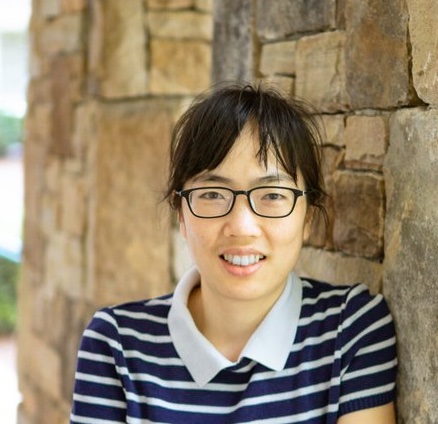Emory Vaccine Center
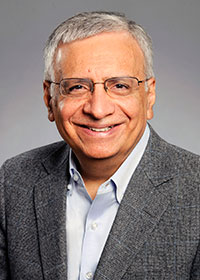
Ahmed Lab
The American Association for Cancer Research (AACR) awarded the 20th AACR-Irving Weinstein Foundation Distinguished Lectureship to Rafi Ahmed, PhD, Professor at the Emory Vaccine Center and the Department of Microbiology and Immunology, during the AACR Annual Meeting 2024, April 2024, at the San Diego Convention Center.
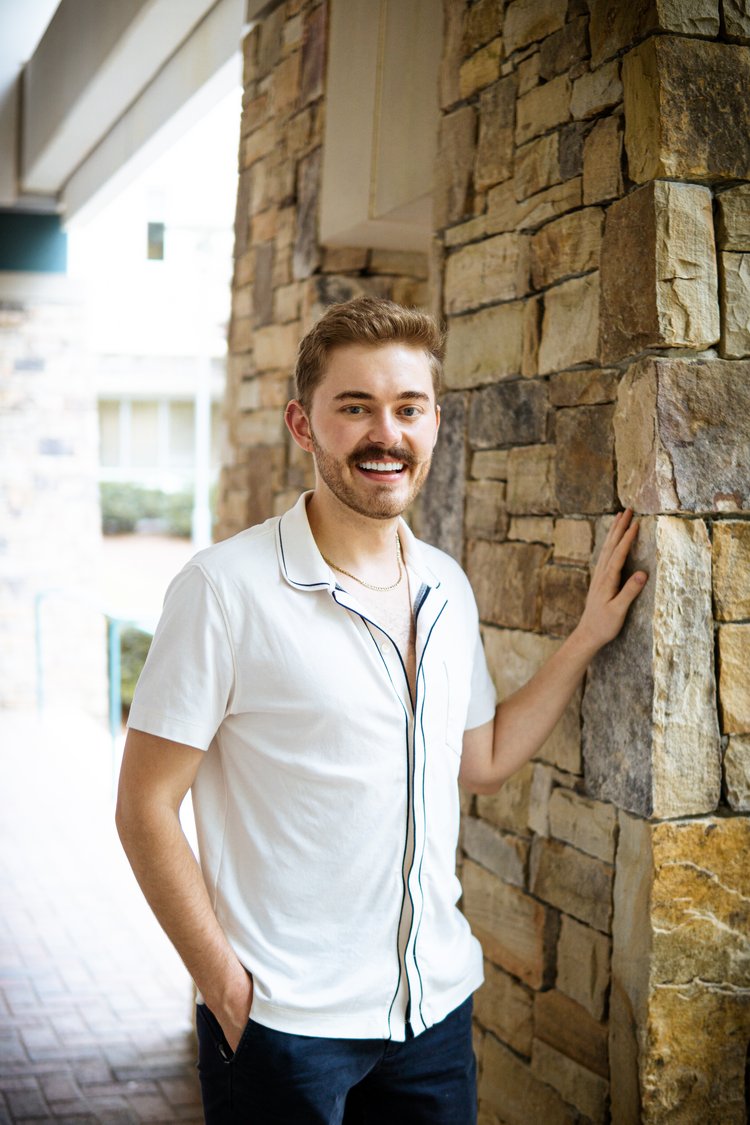
Bosinger Lab
Chris Edwards, graduate student in the Bosinger Lab, scored a 5th percentile on his F31 fellowship proposal, “The Role of Immunoglobulin Genetic Diversity in the Development of Neutralizing Antibodies Against HIV Env Protein,” and has been funded for three years.
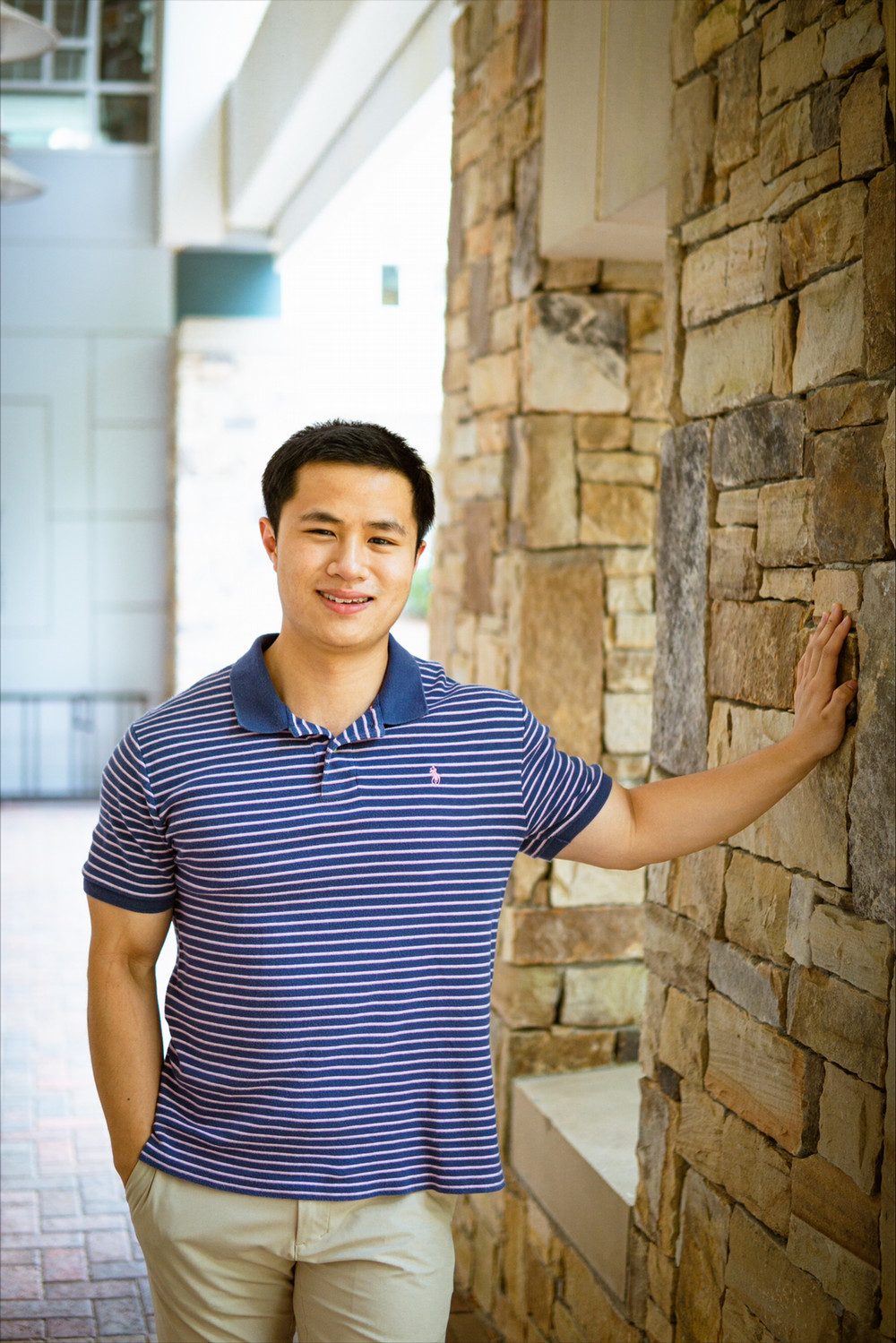
Curtis Lin, research specialist in the Bosinger Lab, has been accepted as a medical student into the Emory University School of Medicine.

Chahroudi Lab
Ann Chahroudi, PhD, Professor at the Emory Vaccine Center and the Department of Pediatrics was awarded an R38 grant for her work in access to research in residency and a P01 grant to study the immune determinants of pediatric HIV/SIV reservoir establishment and maintenance. She recently gave the 22nd Annual J. Neal and Lois Middelkamp Lecture at Washington University School of Medicine.

Day Lab
Cheryl Day, PhD, Associate Professor at the Emory Vaccine Center and the Department of Microbiology and Immunology received a new NIH R01 grant titled,"Identifying critical determinants of vaccine-induced cellular and humoral immunity from birth through childhood in HIV-exposed and unexposed children". This is an MPI R01 with Jennifer Slyker from University of Washington.
This project will study immune responses to vaccines from birth to 6 years of age in an ongoing cohort of Kenyan children. The lab will conduct longitudinal modelling of antigen-specific antibody and T cell responses to determine whether maternal immune activation and early-life exposure to the immune-modulating viruses HIV and cytomegalovirus (CMV), as well as other co-infections, nutrition, and intestinal inflammation, affect vaccine-induced immune responses from birth through middle childhood. These data will inform improved vaccination strategies for children living in areas with a high prevalence of HIV, CMV and malnutrition.
Dr. Day also published a paper, "Active tuberculosis is associated with depletion of HIV-specific CD4 and CD8 T cells in people with HIV," in AIDS Res Hum Retroviruses, March 2024.

Rengarajan Lab
Louis B. Hopkins, MPH, graduate student in the lab of Jyothi Rengarajan Lab, Emory Vaccine Center & Division of Infectious Disease, was inducted into the 2024 Edward A. Bouchet Graduate Honor Society at Emory 2024 Edward A. Bouchet Graduate Honor Society at Emory University. This award recognizes outstanding scholarly achievement and promotes diversity and excellence in higher education and the professoriate.
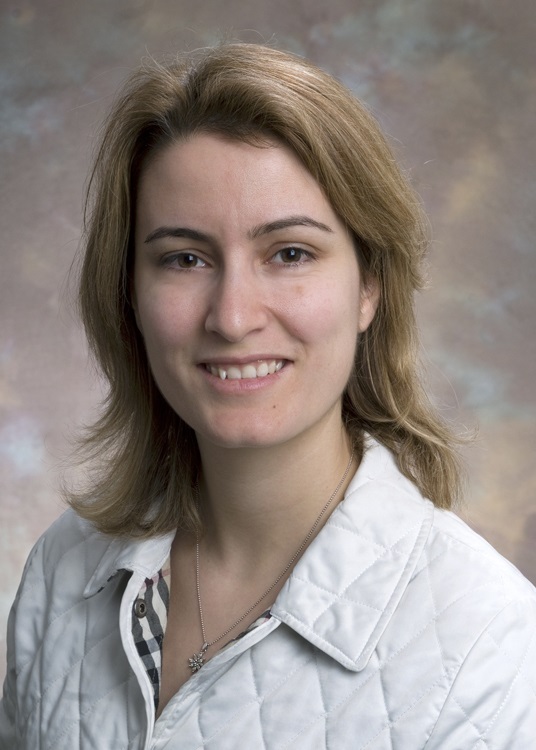
Rouphael Lab
Nadine Rouphael, MD, Professor at the Emory Vaccine Center and the Department of Medicine, was elected to the American Society for Clinical Investigation, one of the nation's oldest and most prestigious medical honor societies.
An infectious diseases physician and researcher, Dr. Rouphael serves as the executive director of the Hope Clinic, the clinical arm of the Emory Vaccine Center, and is the Emory principal investigator for the NIH funded Vaccine Treatment and Evaluation Unit (VTEU). She has an outstanding record of scholarship, mentorship and leadership in building Emory’s nationally recognized translational vaccinology and therapeutic clinical trials program.
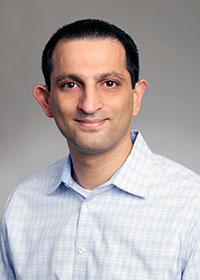
Suthar Lab
Mehul Suthar, PhD, Associate Professor at the Emory Vaccine Center and the Department of Pediatrics was named in the World's Top 2% Scientist List. Stanford University has released an updated version of its ranking that lists the top two percent of the most-cited scientists in various disciplines. The report was prepared by a team of experts led by the distinguished Professor John Ioannidis, renowned for his contributions to evidence-based medicine, clinical research, and meta-research.
Dr. Suthar was recognized among the world's most influential researchers by the Institute for Scientific Information (ISI). This past year, Dr. Suthar was awarded the Marshall, Gerstein, and Borun Funding for the CureVac study.
The Suthar Lab also received a Gold Certification from The Green Labs at Emory Program for integrating sustainable practices into their laboratory operations. This recognition highlights the lab's dedication to environmental stewardship and their contributions to the broader scientific community.
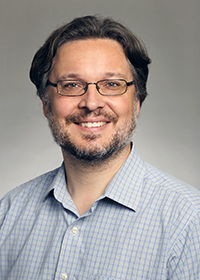
Wrammert Lab
Jens Wrammert, PhD, Associate Professor at the Emory Vaccine Center and the Department of Microbiology and Immunology was named in the World's Top 2% Scientist List. Stanford University has released an updated version of its ranking that lists the top two percent of the most-cited scientists in various disciplines. The report was prepared by a team of experts led by the distinguished Professor John Ioannidis, renowned for his contributions to evidence-based medicine, clinical research, and meta-research.

IDCRC Highlights
The Infectious Diseases Clinical Research Consortium (IDCRC) serves as a hub with the VTEUs and NIAID to integrate, facilitate and build IDCRC research priorities and processes. The IDCRC institutions, including Emory University, are leaders of influential infectious diseases, immunology and clinical research programs focused on vaccines and STIs at eight top academic institutions and affiliates across the country.
Biological Discovery through Chemical Innovation
Year 5 Accelerator Grant Awards
BDCI announced the recipients of the Year 5 BDCI Accelerator Grants. These grants aim to further cultivate the network of Emory researchers working at the critical intersection of chemistry, biology, and human health, and fund innovative, cross-disciplinary projects that align with the mission of the BDCI.
This year’s proposals span three major units at Emory, five individual departments, multiple therapeutic areas, and a diverse set of technological approaches. These six groups will receive $40,000 over the next year to complete the aims outlined in their proposal, with the ultimate goal of providing the preliminary data necessary to apply for larger, extramural funding. The 2024 projects — along with their investigators — that received Accelerator Grants are:
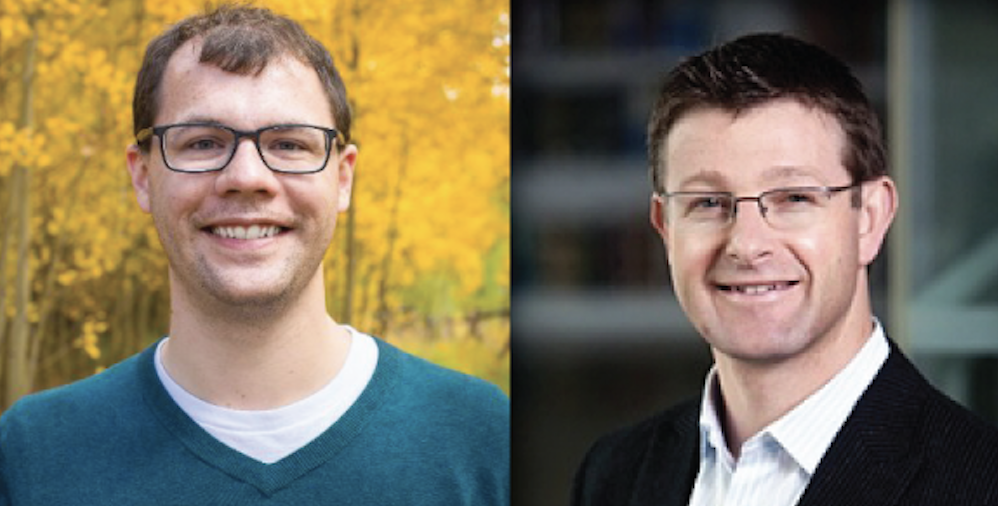
Project Title: "New chemical strategies for the design of EGFR kinase inhibitors"
Tyler Beyett, PhD, Assistant Professor, Department of Pharmacology and Chemical Biology
Simon Blakey, PhD, Associate Professor, Department of Chemistry
Mutations in the Epidermal Growth Factor Receptor gene (EGFR) are common causes of lung cancer, which is especially prevalent in the US Southeast. Although there are several EGFR inhibitors on the market, patients often develop resistance, necessitating the development of EGFR therapeutics with new mechanisms of action. The proposed work will explore how new reactive groups can be incorporated into existing EGFR kinase inhibitors to enhance their pharmacological properties, thus improving patient outcomes. The project has emerged from a new collaboration at Emory between Tyler Beyett, a newly established Assistant Professor in Pharmacology & Chemical Biology, and Simon Blakey, a well-established Professor in Chemistry, and will expand upon their respective expertise in structure-based drug design and synthetic chemistry.
“We are excited to receive support from BDCI on our project and establish a new collaboration on a project that fits with the mission of BDCI – to apply innovative chemistry methods to discover new biology.”
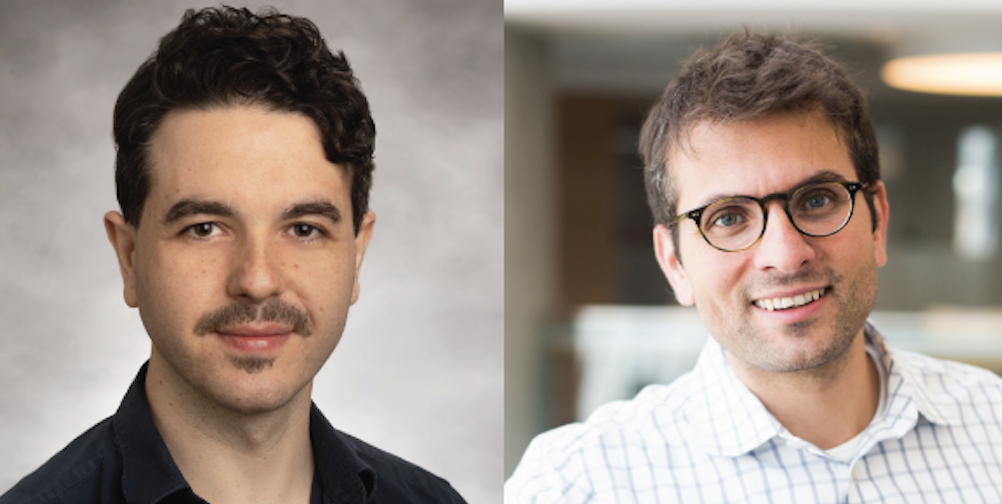
Project Title: "Investigating mechano-regulation of human brain development through neuronal migration with tunable, genetically encoded tension sensors"
Fikri Birey, PhD, Assistant Professor, Department of Human Genetics
Khalid Salaita, PhD, Samuel Candler Dobbs Professor of Chemistry
Consider the following question: How do migrating neurons use mechanical forces to sculpt the intricate architecture of the brain? The importance of this question lies in the fact that changes in the mechanical properties of neurons and the brain matrix are associated with multiple diseases, including congenital birth defects, autism spectrum disorders, schizophrenia, and even Alzheimer’s disease. Fikri Birey (Human Genetics) and Khalid Salaita (Chemistry) have formed a new collaboration to tackle this important question, combining their unique expertise in protein engineering, mechanobiology, and neurodevelopment. As they point out, very little is known about how forces instruct developmental phenomena at the single cell level, leaving this team with many exciting opportunities for discovery in this critical area of human development!
“We are thrilled to be able to push the frontier of interdisciplinary science to cover completely new territory with the support of the BDCI! This seed award presents us with a unique chance to bridge disciplinary divides between our respective domains of investigation, chemistry, and neurobiology, paving the way to explore and reveal aspects of biology that were once beyond our reach,” said Birey.

Project Title: " Targeting PRMT5–MEP50 PPI with novel small molecules for therapeutic development"
Mingji Dai, PhD, Asa Griggs Candler Professor, Department of Chemistry
Yong Wan, PhD, SOM Endowed Professor of Pharmacology and Chemical Biology and Radiation Oncology, Director for Basic Research, Glenn Family Breast Center
Targeting challenging protein-protein interactions is a grand challenge in the discovery of new therapeutics for many diseases, including breast cancer. Triple negative breast cancer (TNBC) is an aggressive disease with limited treatment options and frequent resistance, and is therefore a high-priority area for novel therapeutic development. This project aims to develop inhibitors that target the interface between protein arginine methyl transferase 5 (PRMT5), a post-translational modifying enzyme with a well-established role in breast cancer, and a key adaptor protein. Successful targeting of the PRMT5-adaptor protein interaction would not only provide a new therapeutic strategy for TNBC, but also address an important unmet medical need. Mingji Dai (Chemistry) and Yong Wan (Pharmacology & Chemical Biology) have teamed up to integrate their expertise in medicinal chemistry and cancer biology to target this challenging, but critical protein-protein interface.
“We’re excited to receive this award, which will allow us to initiate this exciting collaboration to obtain critical results for external funding applications,” said Wan.
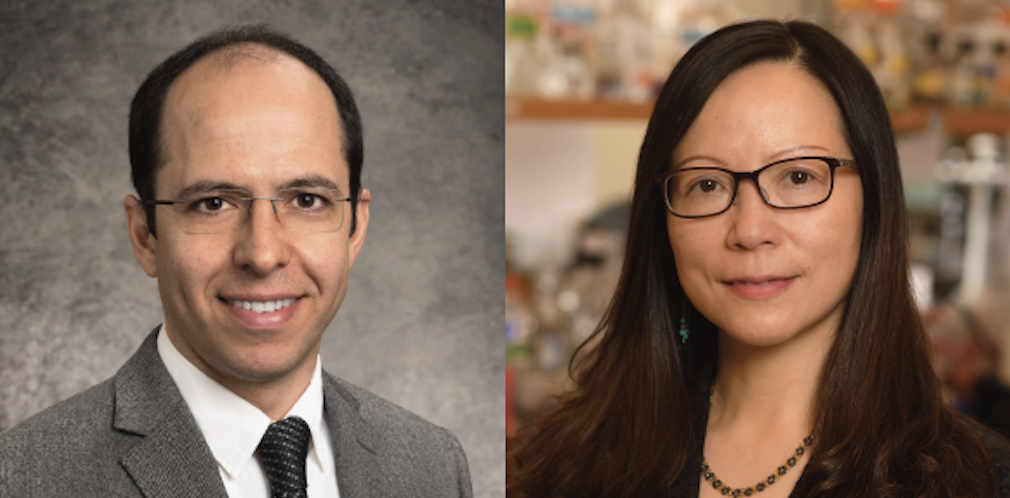
Project Title: "Targeting translation machinery in Candida albicans to combat infection"
Sohail Khoshnevis, PhD, Assistant Professor, Department of Biochemistry
Yuhong Du, PhD, Associate Professor, Department of Pharmacology and Chemical Biology
Fungal infections are responsible for an estimated 1.5 million deaths per year. The current treatments for fungal infections are mostly restricted to polyenes, azoles, and echinocandins, which target fungal cell walls and membranes. Use of these antifungals is limited by their toxicity, drug-drug interactions, and the emergence of resistance, which poses a risk to the healthcare system and underscores the importance of identifying novel therapeutic targets and new treatment approaches. This project aims to discover potent compounds that target the translational machinery in Candida albicans, thus identifying a novel mechanism of action to address the above issues related to current anti-fungal therapeutics. The combination of Sohail Khoshnevis’ (Biochemistry) expertise in RNA and protein biochemistry and fungal biology and Yuhong Du’s (Emory Chemical Biology Discovery Center) expertise in drug screening and chemical biology creates a unique opportunity for this group to advance the field of anti-fungal therapeutics and significantly improve the lives of patients suffering with Candida albicans infections.
The Khoshnevis and Du labs are “thrilled to have received this Accelerator Grant, which will allow us to establish a new research area in our group”.
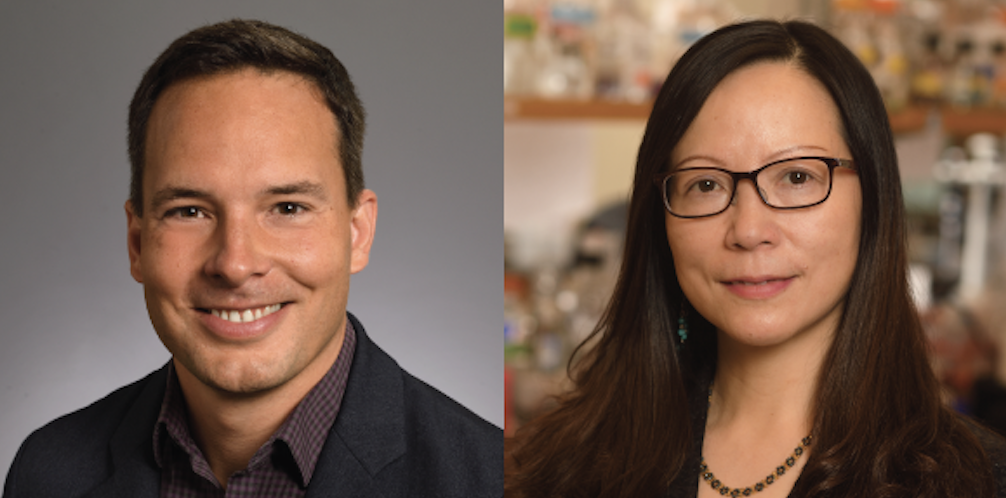
Project Title: "Therapeutic targeting of pathogenic lipid droplets in a human microglial model of neurodegeneration"
Tom Kukar, PhD, Associate Professor, Department of Pharmacology and Chemical Biology
Yuhong Du, PhD, Associate Professor, Department of Pharmacology and Chemical Biology
Loss-of-function mutations in the progranulin gene are a major cause of frontotemporal dementia and a risk factor for Alzheimer’s and Parkinson’s disease. Although it is known that granulins help maintain normal lipid turnover in the lysosome, the reason why loss of granulins leads to neurodegeneration has been elusive. To address this, the proposed project will use high-content imaging to identify small molecules that can rescue abnormal lysosomal function and lipid droplet formation in a human microglial model of frontotemporal dementia caused by progranulin mutations. This project expands the Kukar lab’s (Pharmacology & Chemical Biology) research using iPSC-microglia cell models into the drug discovery and chemical biology space through a new collaboration with Dr. Yuhong Du, Associate Director of the Emory Chemical Biology Discovery Center. The ultimate goal of this work is to identify lead compounds to develop drugs to treat multiple neurodegenerative diseases.
“We are thrilled and honored to receive this award! These funds will allow us to combine cutting edge cell and chemical biology to help understand the function of progranulin and identify small molecules to guide therapeutic development for neurodegenerative diseases, which are desperately needed,” said Kukar.
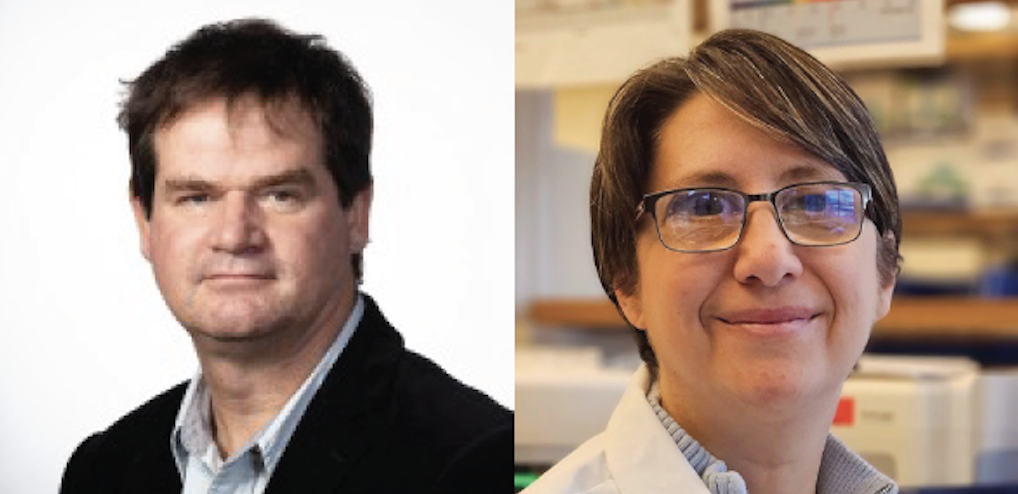
Project Title: " Selective JAK2 inhibitors optimized for CNS penetration for the treatment of HIV-associated neurocognitive disorders & a pathway to a cure for HIV"
Steve Pelly, PhD, Development Scientist, Sr EIDD, Department of Chemistry
Christina Gavegnano, PhD, Assistant Professor, Department of Pathology and Laboratory Medicine
Although the progression of HIV infection to AIDS is controllable with effective antiretroviral therapy, HIV persistence in the central nervous system (CNS) leads to chronic local inflammation and subsequently neurocognitive impairment in as much as half the population living with HIV. This project aims to design novel, CNS penetrant drugs with an immunomodulatory effect as an effective treatment to reverse HIV-associated neurocognitive disorder (HAND) and therefore provide an effective treatment option for these patients. This collaboration between Steve Pelly (Liotta research group, Chemistry) and Christina Gavegnano (Pathology & Laboratory Medicine) synergizes the Liotta group’s expertise in rational design and synthesis of small molecule receptor agonists with the Gavegnano lab’s biological systems in which to evaluate these compounds, thereby forming a drug discovery team with all the necessary skills and infrastructure to be effective in this endeavor.
“Drug discovery is truly a team effort, and this project brings together two highly skilled and effective teams whose roles are very different, yet indispensable for the overall success of the project. Both teams are passionate about the work and look forward to driving this project forward in the months to come,” said Pelly.
BDCI hosts a monthly coffee at Kaldi's Coffee as a way to connect with others in the BDCI community. Check BDCI calendar for details.



